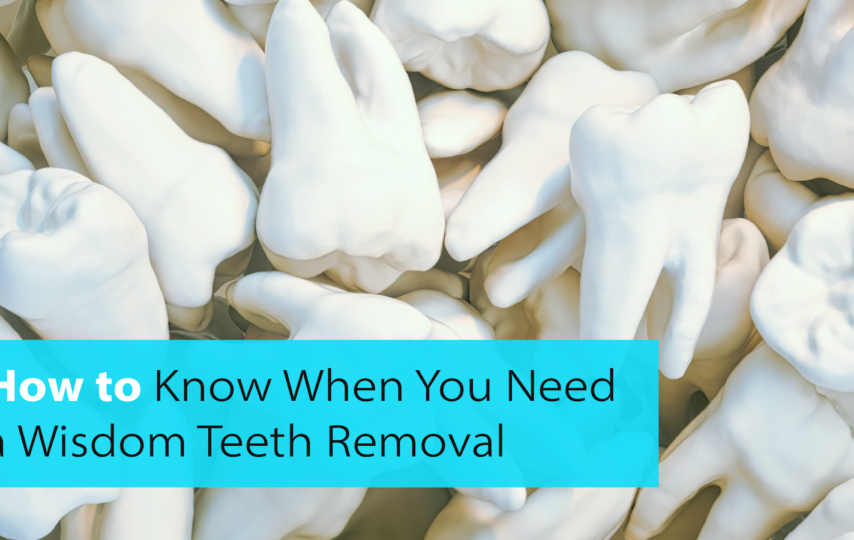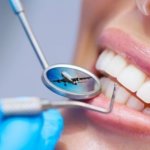Your wisdom teeth are the last teeth to come through and they are very tricky. They grow at the back of your gums; most people have 4 of them, some have less, and some have none!
They erupt in your late teens to early twenties, and if they cause problems during this time frame, know that this is the perfect time to have them taken out before the roots fully develop and the risk for developing complications gets higher. If you require a wisdom tooth extraction or other kinds of dental treatment, visit this dentist in Upper east side.
Well, now you are aware of the appropriate age range when wisdom teeth are usually removed, but a lot of the time you don’t have to undergo the procedure because your wisdom teeth simply emerge in the perfect position.
Unsure if you do or don’t need them taken out, don’t worry, you’ll know because these symptoms won’t let you live in peace until you do something about them:
Jaw
When your wisdom teeth are growing in, they apply a lot of pressure to the back of your mouth and the discomfort, or in many cases the persistent pain, might extend to neighboring teeth as well.
This will, therefore, make it difficult for you to open your mouth to even speak or eat.
It is very normal for the proper coming in of wisdom teeth to cause swelling, so if you are facing the added trouble of improper growth, then prepare yourself for a possible change in the way your teeth bite together which will result in jaw stiffness.
If this happens to you, then you need to address this issue by having it checked out because the improper alignment of your mouth can lead to really serious complications that you do not want to get into. For the correction of your jaws and other dental needs, we recommend you to visit an orthodontist in Washington DC.
Gums
When your wisdom teeth start erupting, they break through your gums causing flaps of excess tissue to form, partially covering your incoming teeth. Gum flaps often grow in the wrong direction, trapping in food particles and bacteria. Because it is so hard, and very painful, to clean an impacted, partially erupted wisdom tooth, the risk for developing an infection or a painful inflammatory gum condition called pericoronitis increases in that area.
Pericoronitis is an inflammation or swelling of your gum tissue around the wisdom teeth and it can lead to pus charge, fever, trismus, loss of appetite, and swollen submandibular nodes in the neck.
For a general case of infection that isn’t as serious as pericoronitis, expect that your gums become swollen and sensitive unless you use a sulcabrush and a monojet to squirt mouthwash and clean under the flap.
Teeth
Wisdom teeth are just weird. In addition to breaking most of the rules, they also have no problem disturbing the peace inside your mouth to come in, although in some cases there might not be enough room for them to grow.
Adding four extra teeth at the back of your mouth when your jaw can’t fit any more of them; You just can’t make it happen. Or else it will lead to over-crowdedness, damaging teeth when pushing them together, causing them to become crooked, and increasing the risk of infection in that area.
Even if you attempt to look after your oral health, you won’t be able to brush or floss your teeth like you usually would. Because you cannot clean your wisdom teeth as well as you should and because food can get easily trapped between your gums and partially erupting teeth, an impacted wisdom tooth already has a higher risk to develop tooth decay than other teeth.
The back of your mouth is so sensitive, it might be even inflamed, and it hurts a lot.
This in turn can lead to infections, tooth decay, and/or cavities.
Sinuses
The pressure applied by the growth of the wisdom teeth and roots on the upper jaw, which is in very close proximity to the sinuses behind your nose, can lead to congestion, sinus headaches, and even infections.
Infections! How though?
In this case, your sinus infection has occurred after an infection from your teeth has spread to your sinuses.
The symptoms include pain, fever, bad breath, nasal discharge, and swelling. Your situation might also get worse when you lie down as the congestion will get worse.
If you make a connection between these symptoms and the eruption of your wisdom teeth, then you have to seek treatment.
Other complications
These aren’t all the symptoms you can experience, yet.
Add to the list earaches and headaches caused by the pain you are already experiencing in your mouth or jaw.
Do you know what’s even worse?
Wisdom teeth develop in sacs within the jawbone, and if they don’t have enough room to emerge or develop normally and you continue to ignore this problem, then these sacs can fill with fluid, forming cysts.
These cysts can lead to great damage to the jawbone, teeth, and might even get to your nerves if not taken care of. Rarely, if the situation escalates, a tumor -usually noncancerous (benign)- develops requiring removal of tissue and bone.
A less severe symptom that people also get is bad breath as they cannot maintain their oral health as they should, no matter how hard they try due to the pain and discomfort.
You will also experience pain inside your mouth and feel like you’ve been biting your tongue or the inside of your cheeks more often. This is caused by the over-crowdedness when your wisdom teeth grow at a weird angle and rub against different parts of your mouth.
If you experience any of these signs, you should seek professional help from your dental care provider. Because if it indeed turned out to be signaling that it’s time to get your wisdom teeth removed then you should act up immediately. The more you wait, the worse it gets.
Symptoms like welling or a headache are resolvable, but crooked teeth will cost you a lot of time and money to fix.
Take this seriously, as it will save you a lot of pain- and resources!
Author: Dr. Nabil Mockbil from Swedish Dental Clinic in Dubai Marina













